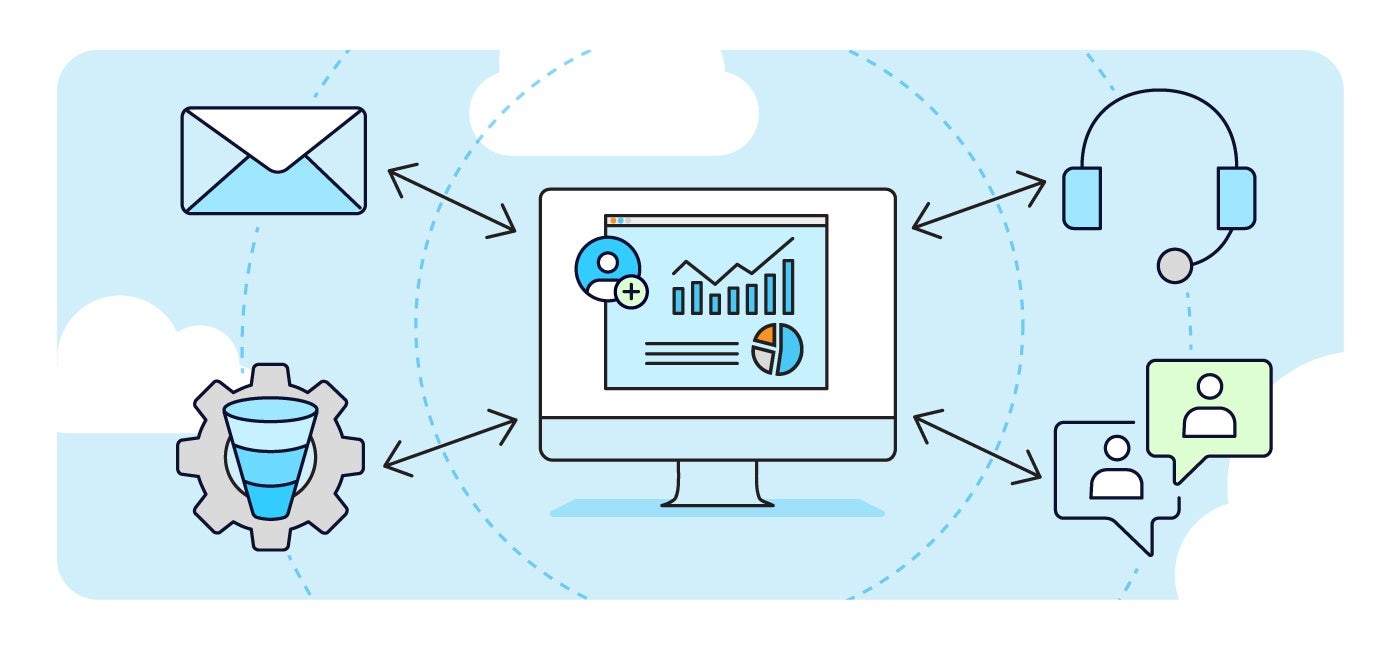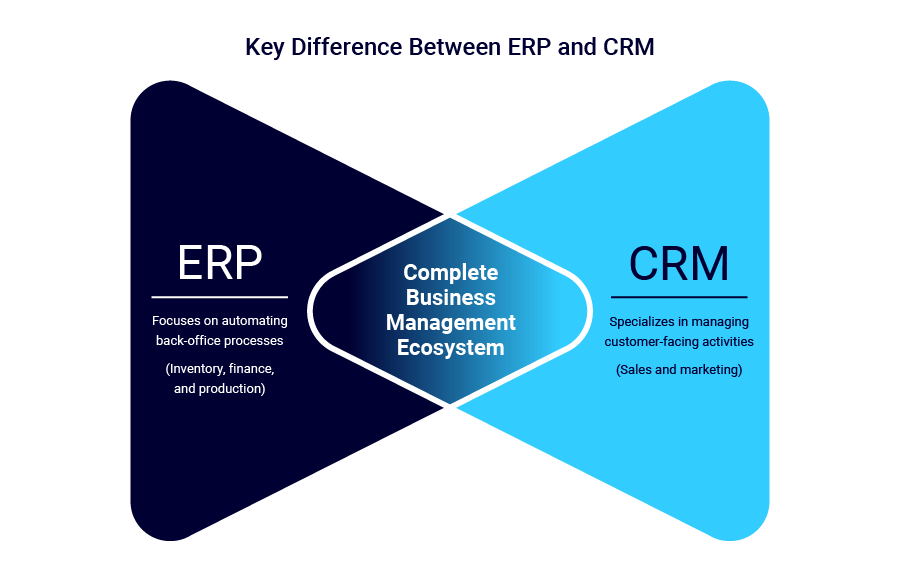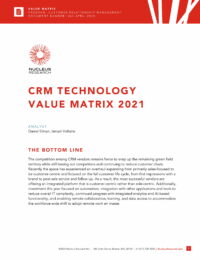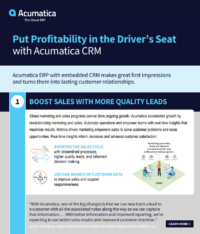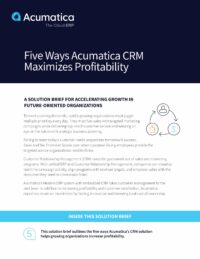How do you choose the best CRM ERP solution for your business needs?
There are very few disadvantages when you combine two powerhouse applications like CRM and ERP—a combination that helps companies achieve revenue goals and supports organizational growth. But if your team makes a poor choice when selecting a CRM ERP solution, you may find yourself suffering from:
- A system that lacks usability, functionality, and scalability.
- Employees resistant to using a new, unproven system.
- Potential debilitating expenses resulting from inexperienced or untrustworthy vendors, lack of proper training, security issues, and more.
These and other concerning consequences of choosing the wrong system can be alleviated by making sure you ask the right questions. Here are a few questions that will help you get started:
- Which CRM software type is right for our business needs?
- Is the CRM software within the ERP solution the right type for your business?
- Can the CRM software within the ERP solution integrate additional tools or types of CRM as your business grows?
- Is the ERP solution able to seamlessly integrate additional CRM solutions should you need to rely on various types?
- Is the ERP solution vendor knowledgeable about their CRM software (e.g., can they capably explain its features and functions)?
- Is the CRM ERP solution intuitive and easy to use?
- How much does the CRM ERP solution cost?
- How does the CRM ERP solution compare to other products on the market?
As you ask these questions and your understanding of the CRM ERP’s capabilities grows, you’ll be able to dive into other important considerations, including discovering its marketing, reporting/dashboards, and workflow functionalities as well as the vendors’ ability to support you before, during, and after the implementation.
How Do You Successfully Implement a CRM ERP Solution?
Software implementations are notoriously challenging, but there are a few things that you can do to make a CRM ERP implementation successful.
Before making your CRM ERP decision, you must first communicate your plan and expectations clearly with your team. Not only will they appreciate knowing this is the plan and begin acclimating to the idea, but they can also offer their input into which solution may work best for them. This alleviates the concern that they may not use the new solution if they find it an inefficient tool. Their support—or lack thereof—can make or break your expensive investment.
Another tip for ensuring a successful implementation is making sure that the ERP vendor has a definitive implementation process that defines each step before you even take the first one. This plan should inform you as to how long the project is projected to take, the resources that will be used, any potential risks (and methods for overcoming them), and more.
Finally, you will need to create a dedicated implementation team made up of employees representing every department within your organization, and together, establish a robust relationship with the ERP vendor, whom you should choose based on its reputation for delivering successful implementations.
What are the benefits of ERP and CRM integration?
An integrated CRM ERP solution offers businesses a seamless way to manage customer relationships alongside operational processes. This integration ensures accurate, real-time data sharing, providing a single source of truth across departments.
With an integrated CRM ERP solution, every aspect of the customer’s journey is connected and transparent, providing businesses with a 360° view of all customer data. Additionally, this all-in-one solution allows businesses to:
- Streamline lead management and events, shortening the sales cycle.
- Determine campaign response rates and sales performance in terms of profitability.
- Utilize ERP-CRM integration to align sales orders, quotes, and invoicing for improved efficiency.
- Optimize contact management (e.g., create leads and contracts from email inbox, import customer data in bulk from Excel, and more).
- Utilize sophisticated reporting tools and personalized dashboards.
- Prioritize and respond quickly to customer requests and concerns.
And the automated features provided by a CRM ERP solution produce time-saving benefits that include (but are not limited to):
- Linking sales orders and quotes to opportunities.
- Using templates to create emails for automatic distribution.
- Knowing when to follow up with leads who should be progressing through the sales funnels.
- And more.
An integrated CRM ERP solution allows businesses to combine operational efficiency with superior customer service. By uniting these tools, you’ll improve decision-making, inspire customer loyalty, and support business growth.
 Canada (English)
Canada (English)
 Columbia
Columbia
 Caribbean and Puerto Rico
Caribbean and Puerto Rico
 Ecuador
Ecuador
 India
India
 Indonesia
Indonesia
 Ireland
Ireland
 Malasya
Malasya
 Mexico
Mexico
 Panama
Panama
 Peru
Peru
 Philippines
Philippines
 Singapore
Singapore
 South Africa
South Africa
 Sri-Lanka
Sri-Lanka
 Thailand
Thailand
 United Kingdom
United Kingdom
 United States
United States
